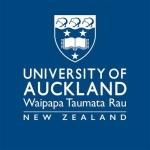Post-operative pain abolished by novel new therapy
A new study conducted at The University of Auckland has successfully abolished the pain suffered by patients in the first 12 hours following surgery on the large intestine and markedly decreased pain for up to a week after surgery.
PhD student Dr Arman Kahokehr based his thesis around the idea that putting a local anaesthetic into the abdominal cavity after major surgery, like a colectomy, could help improve recovery.
The results showed the novel therapy achieved that and much more, completely eliminating pain for the patient for the first 12 hours after surgery.
“We can control pain fairly well after abdominal surgery using an epidural, so we were focused on using the local anaesthetic to control the post-operative sickness response patients suffer following major intraperitoneal surgery,” said Dr Kahokehr.
“It was a complete bonus to find that this technique not only helped reduce the sickness response, it also abolished pain,” he said.
The study was conducted at The University of Auckland’s South Auckland Clinical School, under the supervision of Associate Professor Andrew Hill.
The School was the first in the country to introduce a Fast-Track environment. This optimised perioperative care programme has reduced recovery time for patients from seven to ten days, down to three to four.
“When we added the local anaesthetic study to the Fast-Track programme, patients had no pain for the first twelve hours and reduced pain for up to seven days after surgery,” said Dr Kahokehr.
“It also reduced morphine consumption, and an array of chemical markers of stress were reduced too. Patients actually felt better and they felt less fatigued,” he said.
Dr Kahokehr is currently working at Whangarei Hospital as he prepares for his Part One surgical exams. He recently presented the study results at a Royal Australasian College of Surgeons (RACS) conference and was awarded the Young Investigator Award.
Later this month he will head to the United States to present his findings to the Association of American Surgeons.
“I presented this concept at a previous conference and my colleagues were really excited about the novel approach we were taking and I got lots of questions, so I think the results of this study will be positively received,” says Dr Kahokehr.
Notes
The South Auckland Clinical School coordinates clinical teaching and research in partnership with Counties Manukau District Health Board and is headed by Associate Professor Andrew Hill. It has research groups focusing on Integrated Care, Perioperative Care and Pacific Women’s Health. Other strengths of the school are pastoral care of cohorted fifth-year students and clinical rotations in Anaesthetics, Emergency Medicine, General and Specialty Medicine and Surgery, Orthopaedics, Obstetrics and Gynaecology, Paediatrics and Psychiatry. Middlemore Hospital is well known for its outstanding teaching in Clinical Medicine at both an undergraduate and vocational level and is home to the National Burns Centre.
